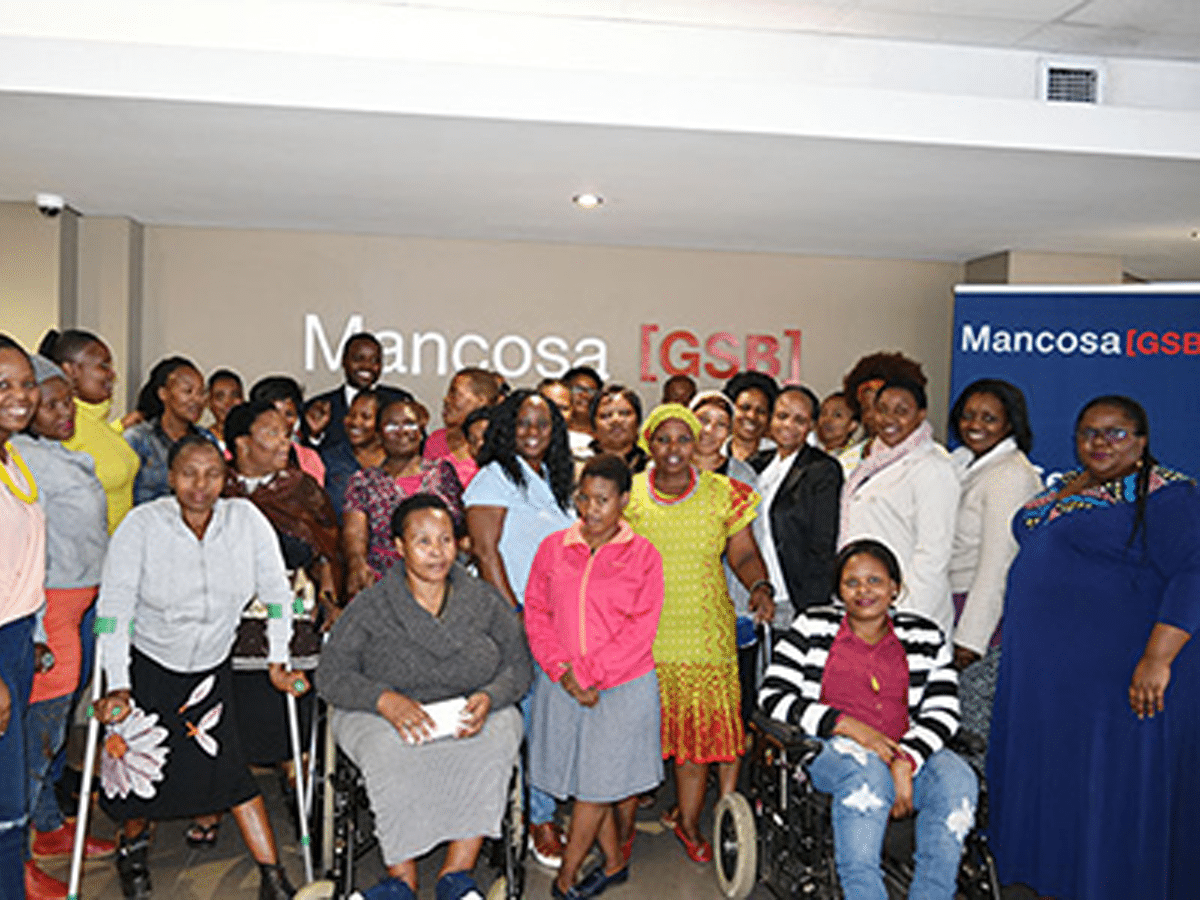Accounting VS Finance: Which Career Path is Right for You?
Choosing the right career path can be overwhelming, especially when deciding between accounting and finance. Both fields offer lucrative opportunities and play a crucial role in business success, but they differ in responsibilities, required skillsets, and career trajectories. Are you drawn to numbers and precision, or do you enjoy analysing markets and investments? Understanding the key differences between accounting and finance will help you make an informed decision that aligns with your strengths and career goals.

In this article, we’ll explore the differences between accounting and finance, the skills required for each field, and how a Bachelor of Commerce in Accounting from MANCOSA can set you up for success.
Covered in this article
- Accounting VS Finance: Understanding the Key Differences
- Which Career Path is Right for You?
- The Best Path to an Accounting Career: MANCOSA’s Bachelor of Commerce in Accounting
- Common Concerns About Studying Accounting
- Take the Next Step Toward a Career in Accounting
- FAQs
Accounting VS Finance: Understanding the Key Differences
While accounting and finance are closely related, they focus on different aspects of financial management. Here’s a breakdown:
| Aspect | Accounting | Finance |
| Focus | Recording, reporting, and analysing financial transactions | Managing assets, investments, and financial planning |
| Key Tasks | Bookkeeping, auditing, tax preparation, financial reporting | Investment analysis, risk management, financial strategy |
| Skills Required | Attention to detail, analytical skills, knowledge of tax laws | Strategic thinking, market awareness, problem-solving |
| Career Options | Auditor, Tax Consultant, Management Accountant, Financial Controller | Financial Analyst, Investment Banker, Risk Manager, Financial Planner |
Accounting is more structured and compliance-focused, while finance involves more strategic planning and forecasting.
Which Career Path is Right for You?
Choosing between accounting and finance depends on your skills, interests, and career goals. Do you prefer structured financial reporting, or are you drawn to market analysis and investment strategies?
Understanding your strengths will help determine whether a stable, detail-oriented accounting career or a dynamic, strategy-driven finance role is the right fit for you.
Let’s explore both options.
You Should Consider Accounting If…
- You enjoy working with numbers and detailed financial records.
- You prefer structured and regulatory work environments.
- You have an interest in taxation, auditing, or financial reporting.
- You want a stable career path with opportunities in both private and public sectors.
You Should Consider Finance If…
- You are analytical and enjoy making data-driven financial decisions.
- You are interested in investments, stock markets, and risk management.
- You enjoy a dynamic and fast-paced work environment.
- You want a career with high earning potential in banking, investments, or corporate finance.
If you enjoy a predictable and structured role, accounting may be the right fit. If you prefer a broader, strategy-driven approach, finance might be a better choice.
The Best Path to an Accounting Career: MANCOSA’s Bachelor of Commerce in Accounting
If accounting sounds like the right fit for you, pursuing a Bachelor of Commerce in Accounting is the first step towards a successful career in finance, auditing, or taxation.
Why Choose MANCOSA?
- Fully Accredited Degree – Recognised by employers across industries.
- Flexible Online Learning – Study at your own pace while balancing work and personal commitments.
- Industry-Relevant Curriculum – Courses include Financial Reporting, Auditing, Taxation, and Managerial Accounting.
- Career Support – Access to a network of alumni, career guidance, and industry partnerships.
Upon completion, graduates can pursue careers as:
- Financial Accountants/ Analysts
- Credit Controllers
- Compliance Officers
- Management Accountants
MANCOSA’s Bachelor of Commerce in Accounting provides the skills, qualifications, and industry exposure needed to thrive in this field.
Common Concerns About Studying Accounting
Deciding to study accounting comes with questions about difficulty, job prospects, and career flexibility. Many prospective students wonder whether an accounting degree is challenging, if it guarantees job opportunities, or whether it allows for a transition into finance roles.
Here, we address some common concerns to help you make an informed decision about your future in accounting.
“Is an Accounting Degree Difficult?”
Accounting requires strong analytical skills and attention to detail, but with structured learning and support from MANCOSA, students can excel.
“Are There Good Job Opportunities in Accounting?”
Yes! Accountants are always in demand, as businesses, governments, and organisations require financial professionals to manage and report on their finances.
“Can I Work in Finance with an Accounting Degree?”
Absolutely. An accounting degree provides a strong foundation in financial principles, allowing graduates to transition into finance roles such as financial analysis and risk management.
Take the Next Step Toward a Career in Accounting
If you’re detail-oriented, enjoy working with financial data, and want a stable, high-demand career, accounting is an excellent choice.
Start your journey with MANCOSA’s Bachelor of Commerce in Accounting and gain the skills and qualifications to succeed in the financial industry.
Explore the Bachelor of Commerce in Accounting at MANCOSA today!
FAQs: Accounting VS Finance
1. Can I switch from accounting to finance later in my career?
Yes! Many accountants transition into finance roles by gaining experience in financial analysis, investment strategies, or risk management.
2. Which field offers better job security, accounting or finance?
Accounting generally provides more job stability, as businesses always need accountants. Finance roles can be more volatile but offer high rewards.
3. Do accounting and finance professionals need different qualifications?
Yes. Accountants typically need degrees with an auditing or tax focus, while finance professionals may pursue CFA, CFP, or investment-related certifications.
4. Is finance more maths-intensive than accounting?
Both require strong numerical skills, but finance often involves more complex modelling, statistics, and market analysis than traditional accounting.
5. Do accountants and finance professionals work together?
Yes. Accountants maintain financial records, while finance teams use that data to make strategic decisions and manage investments.
6. Which field is better for entrepreneurs: accounting or finance?
Finance is ideal for entrepreneurs looking to understand investments and business strategy, while accounting is crucial for financial management.
7. Can I work internationally with a degree in accounting or finance?
Yes. Many global firms hire accounting and finance graduates, but some accounting roles may require additional local certifications.





